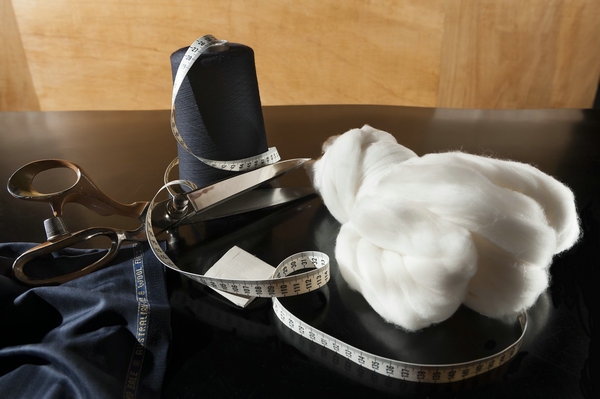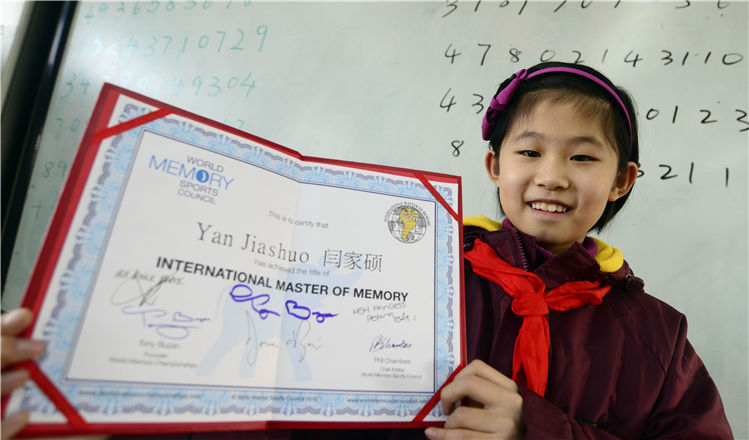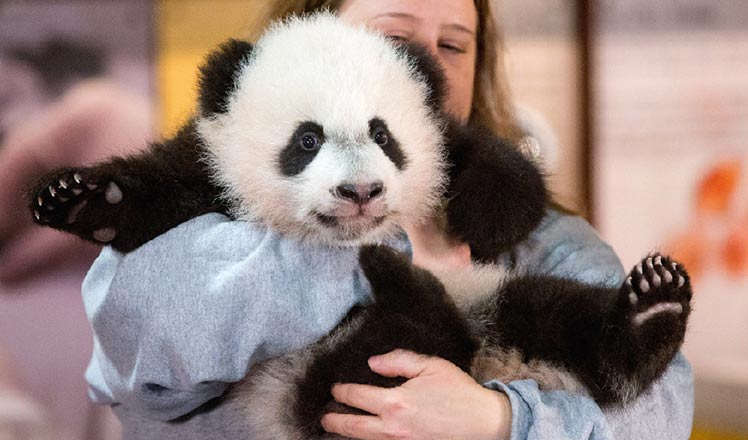Pure luxury in wool and cashmere
Updated: 2015-12-25 08:18
By Yu Ran(China Daily)
|
||||||||
 |
|
Loro Piana, the Italian wool fabric company, has been kept the tradition of buying raw material directly from farmers to ensure quality.[Photo provided to China Daily] |
Walking into the manufacturing facilities of Loro Piana's mill in Verrone, Italy, is like stepping into wild farmland in China's Inner Mongolia autonomous region - a place filled with bleating sheep and goats and the mixed smell of wet grass and humid soil permeating the air.
But instead of a running into a flock of animals, there are piles of raw wool and cashmere transported from farms all over the world waiting for examination, cleaning and sorting by rows of machines.
"We buy raw material directly from the farmers and do all the manufacturing, which is the only way to ensure top quality," says Pier Carlo Buscaglia, the general manager of Loro Piana's factory in Verrone.
Originally from Trivero in Italy, the Loro Piana family became wool fabric merchants in the early 19th century. The company was founded on April 4, 1924, by Petro Loro Piana, who gave up the previous family business to create a company that could keep up with rapidly changing times in Corso Rolandi, which remains its headquarters.
As Pier Luigi Loro Piana, deputy chairman of Loro Piana, one the largest Western buyers and manufacturers of high-end wool, says: "Through 200 years, we have pushed really hard on bettering quality, which is our strategy."
The company has a presence in all the major markets where the materials originate - Peru and Argentina for vicuna, China and Mongolia for cashmere and baby cashmere, and Australia and New Zealand for fine merino wools.
Buying raw material directly from farmers to ensure quality has always been the Loro Piana tradition. Currently, China is Loro Piana's new destination to explore the mystery of cashmere and get hold of high-quality raw material.
To obtain perfect cashmere (where the thickness of the fiber is less than 14 microns), Loro Piana launched a project in China in 2009 in Alashan, in Inner Mongolia. The project involves joint research by China's Jilin Agricultural University, Italy's Camerino University and the Italian National Agency for New Technologies, Energy and Sustainable Economic Development.
"In the last 20 years, the number of goats in China has increased greatly, but the quality has dropped, which is a big problem, because the goodwill for cashmere will be lost and it won't be appreciated by consumers as it used to be," says Loro Piana, who comes from the sixth generation of the family to run the business.
This is why the Loro Piana method emphasizes smaller herds and rationalized shearing, enabling shepherds get higher annual volumes of better-quality fiber, leading to increased revenue.
To encourage them to adopt this model, the company created the "Loro Piana Cashmere of the Year Award".
"We push people to go for fine cashmere, which does not represent a reduction but an increase in revenue, because better cashmere is worth more," says Loro Piana, who spends 20 percent of his time traveling around the world visiting farms to find the best raw materials.
This long and shared journey with producers has also enabled Loro Piana to seal exclusive agreements with skilled breeders to acquire all their 12-micron wool, which serves as the base for a ready-to-wear line (outerwear, knitwear, scarves) called The Gift of Kings, together with existing product lines Vicuna, Baby Cashmere and Lotus Flower.
Instead of using a large amount of labor, the company uses more machines than other traditional manufacturers in Italy to ensure high quality.
Alessandra Contessotto, the trade marketing manager of the textile division in Loro Piana, says: "We use better machinery to monitor and control quality. The combination of technology and young talent is essential to better our products."
Meanwhile, Chinese consumers are following US and European trends to become loyal buyers of Loro Piana, which has 160 stores worldwide, 24 of them in China.
Loro Piana says: "I notice that especially after the global economic crisis of 2008, Chinese consumers began to see luxury as quality - an expensive garment must have value, which also is our rule.
"This is good for the company as we see growing demand especially from China, which is our third-largest market in the world."
- More aid from China set for Syria
- Japanese journalist reportedly being held in Syria
- New York City has warmest Christmas Eve on record
- One dead as fight leads to fatal shooting at North Carolina mall
- Trump's lead bodes well for Hillary Clinton's presidential bid
- Spanish Socialist leader insists no support for Rajoy

 10 major economic policies that will make a difference on lives
10 major economic policies that will make a difference on lives
 Santa Claus is busy in China
Santa Claus is busy in China
 Yearend 2015: Heartstopping images captured by daredevils
Yearend 2015: Heartstopping images captured by daredevils
 Girl becomes youngest Master of Memory
Girl becomes youngest Master of Memory
 Whatever the shape or size of a tree, Merry Christmas!
Whatever the shape or size of a tree, Merry Christmas!
 The world in photos: Dec 14 - 20
The world in photos: Dec 14 - 20
 First American woman who works as captain for a Chinese airline
First American woman who works as captain for a Chinese airline
 Life of a family amid Beijing's red alert smog
Life of a family amid Beijing's red alert smog
Most Viewed
Editor's Picks

|

|

|

|

|

|
Today's Top News
Shooting rampage at US social services agency leaves 14 dead
Chinese bargain hunters are changing the retail game
Chinese president arrives in Turkey for G20 summit
Islamic State claims responsibility for Paris attacks
Obama, Netanyahu at White House seek to mend US-Israel ties
China, not Canada, is top US trade partner
Tu first Chinese to win Nobel Prize in Medicine
Huntsman says Sino-US relationship needs common goals
US Weekly

|

|







